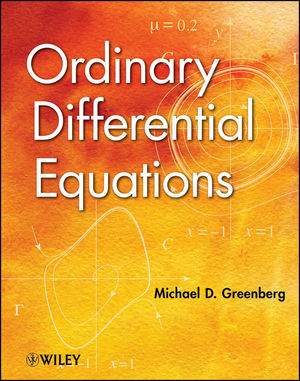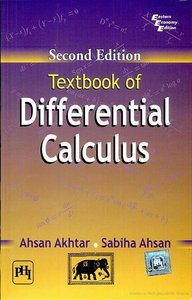

Making Fundamentals of Differential Equations an excellent resource for anyone who wants to learn about differential equations.ĭifferential Equations and Boundary Value Problemsĭifferential Equations and Boundary Value Problems (Buy Online) is an essential textbook for anyone wanting to learn about Differential Equations. Overall, this textbook does a great job of thoroughly explaining each concept in detail with the help of examples. Finally, the book covers second-order linear equations in depth. The book also contains a wealth of information about numerical methods, from Euler’s method to higher-order methods like Taylor and Runge-Kutta. In addition, the book covers special integrating factors and substitutions, as well as mathematical modeling and compartmental analysis. The book covers all the major topics in differential equations, including direction fields, approximations, linear equations, and exact equations. Overall, A First Course in Differential Equations is an excellent resource for anyone who wants to learn more about differential equations and how they can be applied to modeling.įundamentals of Differential Equations (Buy Online) is widely considered to be the best textbook on the subject. This chapter covers topics such as preliminary theory, reduction of order, homogeneous linear equations, and undetermined coefficients. This chapter discusses topics such as linear models, nonlinear models, and modeling with systems of first-order differential equations.įinally, the book contains a chapter on higher-order differential equations. In addition, the book includes a chapter on modeling with first-order differential equations. The book covers topics such as initial-value problems, solution curves, separable variables, linear equations, exact equations, and more. Zill is widely considered to be one of the best textbooks on differential equations, and it is frequently used in college courses on the subject.

Differential Equations and Linear Algebra.Fundamentals of Differential Equations bound with IDE CD.Differential Equations with Boundary-Value Problems.Differential Equations and Boundary Value Problems.A First Course in Differential Equations with Modeling Applications.Can't see how you can work with PDEs if you don't have undergrad familiarity with ODEs as many problems are solved by converting a PDE to an ODE. I'm curious if you have a gap in PDEs also. And even has a lot of non rigorous proofs.


This is why you can't teach a young gymnast a double back when they start.Ī good, cheap book for self study is Tenanbaum and Pollard. The human brain is not a computer, it learns from imitation and repetition. It's actually more efficient and you will learn more and deeper by learning the content first in terms of problem solving manipulation and later in terms of all the fancy stuff. And it's not just about how books are constructed and how people typically learn. Then after that, go grab some fancy book with all the grad school emphasis on proofs and Sobolev spaces and the like.īecause 90%+ of those books assume exposure to diffyQs first (in the way that "real analysis" typically assumes "calculus" exposure first). But one emphasizing manipulation and problem solving and applications. Not one with all the fancy connections to other fields of math that you know. Work through a standard undergrad text on DiffyQs first. It is very classical, but it really does cover all the essential theory. It sounds like you have a strong geometry/topology background, so maybe this disqualifies this text for you.įor a more classical treatment of ODEs, in particular the treatment of ODEs as linear operators (Sturm-Liouville theory), I might go for Coddington's Theory of Ordinary Differential Equations. There are some tools missing, in particular from geometry/topology, that could make the presentation a bit cleaner. Some flaws: The book really only presupposes mastery of analysis. However, I think the emphasis of this text on geometry, and on using some more modern results, makes the book a decent choice. I would not call this a standard introduction to ODE - it does not cover some of the absolute basics. The focus of this book is on qualitative behavior - existence of fixed points, limit cycles, blow-up solutions, etc. I occasionally use a book called Differential Equations and Dynamical Systems, by Lawrence Perko. There are way too many approaches to ODEs to have any one book cover them all.


 0 kommentar(er)
0 kommentar(er)
